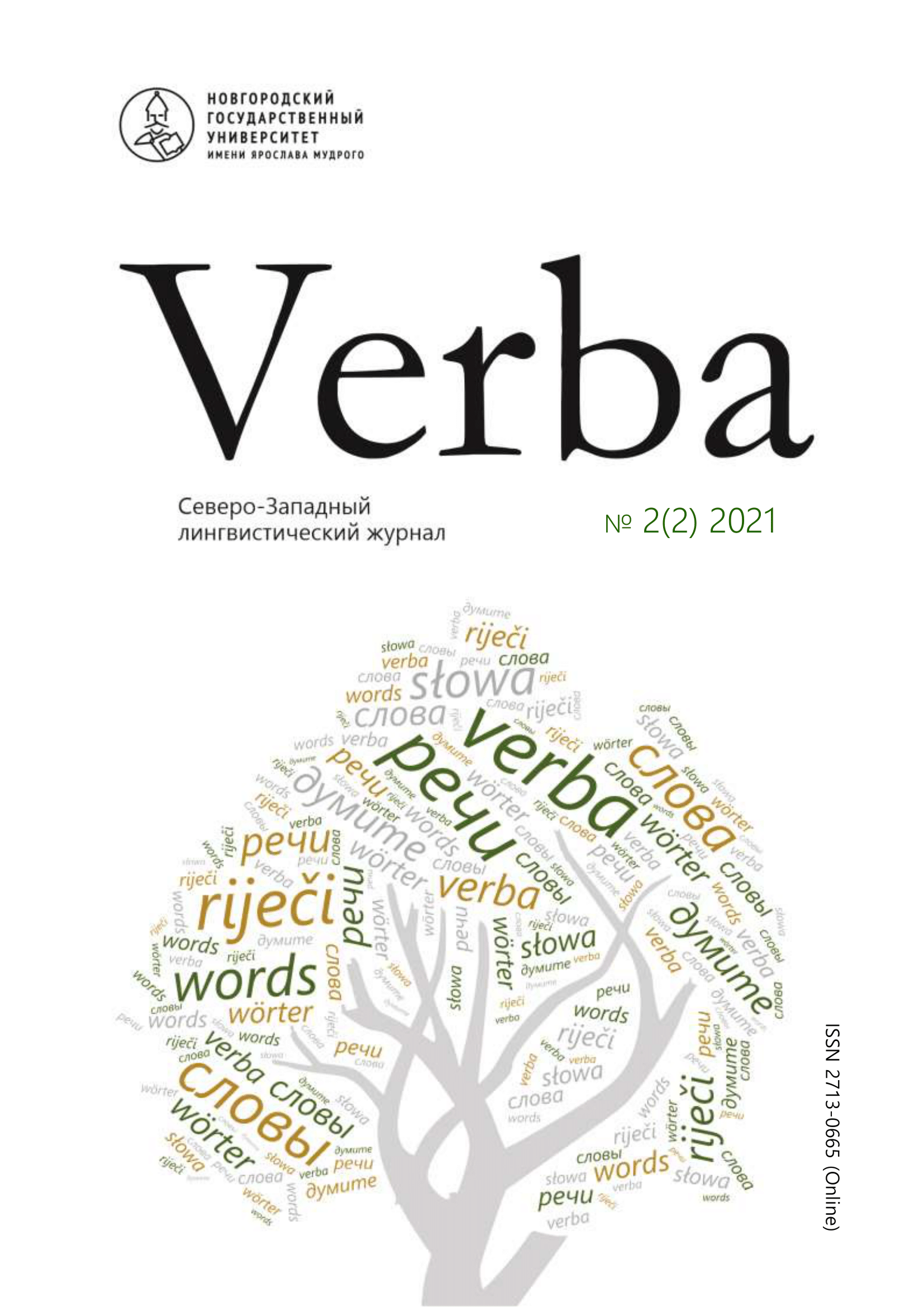Proverbs of Peter the Great’s Time in the V. P. Zhukov’s Dictionary
DOI:
https://doi.org/10.34680/VERBA-2021-2(2)-8-19Keywords:
V. P. Zhukov’s “Dictionary of Russian Proverbs and Sayings”, paroemiology, proverb, saying, paroemias of Peter the Great’s time, diachronic paroemiographyAbstract
The article emphasizes the importance of the “Dictionary of Russian Proverbs and Sayings”, compiled by V. P. Zhukov, for Russian and general paroemiology and paroemiography. A compiler’s innovative, unconventional understanding of the term proverb is noted, to which the author attributed vague proverbs like Money is a matter of time. The main lexicographic parameters, which this dictionary is based on, are characterized: 1) consistent presentation of interpretations to each figurative proverb in the absence of them for vague proverbs, i.e. sayings; 2) detailed contextual illustrations from classical and modern literature for each proverb, confirming its semantization; 3) consistent historicism in indicating the chronological sequence of recording Russian paroemias. The last goal is achieved by V. P. Zhukov in three ways. First, the
arrangement of the quotation material with an implicit primary use of the authors’ chronological sequence: first – the works of the classics, then – contextual quotations from the Soviet literature. Secondly, by giving references to the 18th century literature and the corresponding contextual illustrations at the end of the dictionary entry. Finally, a reference to the main Russian paroemiological collections in their chronological order. Particular attention in the article is paid to the diachronic aspect, which is implied in the dictionaries by references to the paroemiological collections of Peter the Great’s time: specific examples demonstrate the meaning of different variant types (morphological, derivational, syntactic and lexical), recorded in the P. K. Simonyi’s collection of ancient Russian proverbs, which V. P. Zhukov consistently refers to. Therefore, the dictionary of V. P. Zhukov remains a powerful impetus for future research in Russian historical paroemiology.
Downloads
Downloads
Published
How to Cite
Issue
Section
License
Copyright (c) 2021 Verba

This work is licensed under a Creative Commons Attribution-NonCommercial 4.0 International License.








